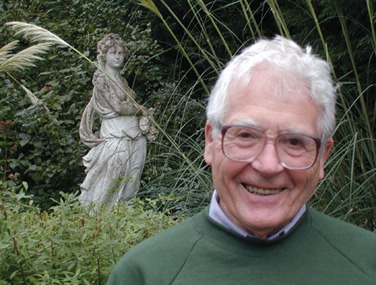Lovelock: Too late for Earth
The Gaia thinker’s latest book warns that climate disaster is imminent 
by Camilla Cavendish You may feel, as job losses soar and parts of the world descend into turmoil, that you’re apocalypsed-out for February. If so, you may not immediately leap at James Lovelock’s forthcoming book, The Vanishing Face of Gaia. His warning that climate change is spinning us into a hot world, where billions will starve and whole ecosystems will collapse, is a horror few want to contemplate, leavened only by the faint consolation that those of us lucky enough to live in the British Isles, Siberia, Chile, Canada or New Zealand may survive. But his prophecies are plausible and they will also make you think, which are two good reasons to grit your teeth and read him. It is human nature to prefer writers who confirm the accepted wisdom to those who speak inconvenient truths. Look at the journalists who warned two years ago that Iceland’s banks were over-leveraged. Remember the late fund manager Tony Dye, who was ridiculed for predicting the dotcom bust and was fired by his employer, Phillips & Drew, only weeks before the stock market turned. The media has been similarly dismissive of scientists who fear that it is too late to avert serious climate change. We prefer those who warn that there are dangers, but that they are far off and containable. Four years ago, when Lovelock forecast widespread devastation, he was generally dismissed as a lovable “maverick”, a word that always makes me sit up because it is a favourite weapon of the Establishment to fend off difficult ideas. Suddenly, in 2009, Lovelock’s fears strike a chord. The Vanishing Face of Gaia has been hailed as “the most important book for decades” by Andrew Marr, a man not especially sympathetic to green issues or conspiracies. The book is powerful, not only because of the scary scale and speed of change that Lovelock foresees, making the first chapters as pacey as a Hollywood romp, but also because he is a serious, hands-on scientist. While working at Nasa in the 1960s he invented the electron capture detector, which enabled him to point the world to the dangers of the ozone hole and pesticides such as DDT. He has also built spy gadgets for MI6. Nor is he a conventional green. He loathes wind farms, is passionately pro-nuclear and is scathing about “saving the planet”. The planet will look after itself, he says. It’s humans we need to save, and soon. What Lovelock calls his “final warning” (he is 90) has new resonance because of the increasingly alarming data that is coming from the observation of everything from species numbers and deforestation to sea levels and Arctic ice.